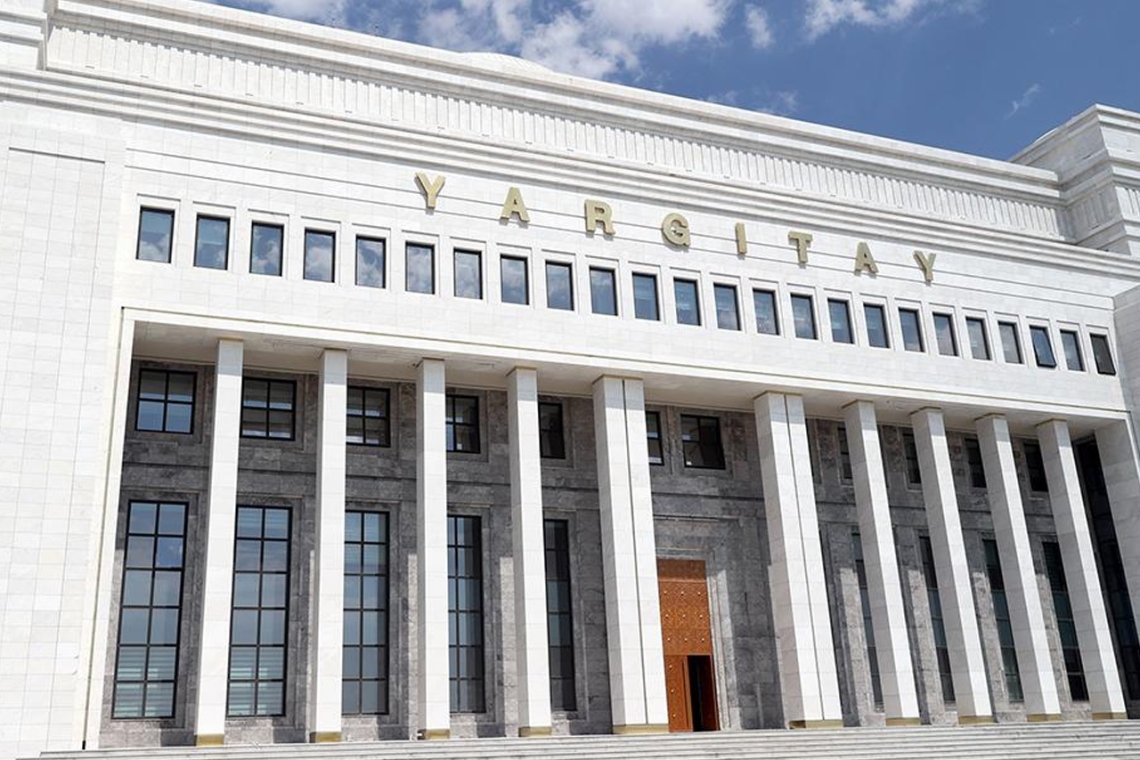Media and Law Studies Association Legal Unit
The 3rd Criminal Chamber of the Court of Cassation ruled not to comply with the Constitutional Court's (AYM) decision on Can Atalay. It also decided to file a criminal complaint against the members of the Constitutional Court who voted in favor of violation of Can Atalay's rights. After the verdict is read in the Grand National Assembly of Turkey (TBMM), Can Atalay will be stripped of his parliamentary seat. The decision points to a deep rift within the judiciary. In the upcoming period, the role of the Constitutional Court will be up for debate in both in the judiciary and the politics.
Published on the evening of 8 November, the judgement is heavily critical of the Constitutional Court's position and authority in the system. The language of the decision is more political than legal. For example, the judgment refers to the Constitutional Court's decision on Erdem Gül and Can Dündar and criticizes that "...it has received heavy and justified criticism for the reasoning it has put forward and has clearly exceeded its review authority in this decision.". The decision goes further and criticizes the Constitutional Court's reference to the Leyla Güven decision as follows: "... the fact that the Constitutional Court cited a judgment that it had rendered as a result of judicial activism, known in the public opinion as the ban on headscarves in universities, which we do not agree with, was found remarkable and considered as an irony.". On the twenty-first page of the decision, there are political criticisms such as "... with the comfort of not being supervised by any body, by constantly increasing and abusing its constitutional authority through case law...".
The reason why the decision is considered a constitutional crisis is that it is the first time in Turkey that there has been such a clash between the high courts. The Court of Cassation is clearly questioning the position of the Constitutional Court, aiming to curb its authority. The decision is undoubtedly a clear violation of Article 153 of the Constitution. Article 153 of the Constitution states that "The decisions of the Constitutional Court ... are binding on the legislative, executive and judicial organs, administrative authorities, real and legal persons.". However, the Court of Cassation ruled that the Constitutional Court's decision should not be followed, rendering this provision of the Constitution ineffective.
The Court of Cassation went beyond this and decided to file a criminal complaint against the members of the Constitutional Court to the Chief Public Prosecutor's Office of the Court of Cassation. This move, which shows that the decision has become personal, points to the recent divisions in the judiciary. The mixed messages from the ruling party also confirm the theory that there is a rivalry between cliques in the judiciary. The criminal complaint against the Constitutional Court members is unlikely to lead to anything. Only the fifteen-member General Assembly of the Constitutional Court can authorize an investigation against Constitutional Court members. The General Assembly can convene with at least 10 of the fifteen members. Considering that ten members voted in favor of the violation in the Atalay decision, it is not legally possible to authorize an investigation.
It is not possible to consider the decision of the Court of Cassation as a legal decision. The First President of the Court of Cassation should immediately initiate a disciplinary process against the members of the 3rd Criminal Chamber of the Court of Cassation. The judges assigned to the chamber should be invited to step down immediately. The Court of Cassation should establish a new panel to implement the Constitutional Court's decision and Can Atalay should be released in accordance with the Constitutional Court's decision. Any discussion and action to the contrary is aimed at destroying Turkey's one hundred and fifty years of legal history. This coup attempt against the constitutional order by the 3rd Criminal Chamber of the Court of Cassation can only be stopped with sharp steps to be taken within the framework of the law.
The most emphasized issue in the Court of Cassation's judgment was that the Constitutional Court ruled beyond the declaration of a violation of rights. The criticism of "super appellate court", repeated many times by the Court of Cassation, in fact shows the desire to limit the authority of the Constitutional Court to the declaration decision. With the constitutional amendment package on the agenda, steps to limit the authority of the Constitutional Court can be expected.
MLSA Legal Unit



